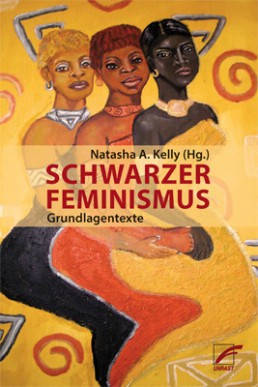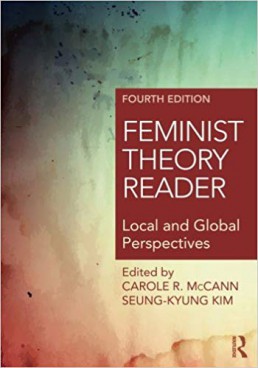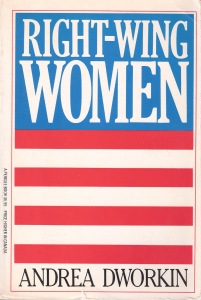An internationalist, anti-racist, feminist reading list

Schwarzer Feminismus (2019) von Natasha A. Kelly – Schwarze feministische Grundlagentexte – Texte von Sojourner Truth, Angela Davis, The Combahee River Collective, bell hooks, Audre Lorde, Barbara Smith, Kimberlé Crenshaw und Patricia Hill Collins – erstmals in deutscher Übersetzung
»Obwohl der Entstehungszeitraum der Texte zwischen 1971 und 1990 liegt, sind sie hochaktuell.« – Ava Weis, Missy Magazin

Feminist Theory Reader – 4th edition (2016) by Carole McCann and Seung-kyung Kim “The fourth edition of the Feminist Theory Reader continues to challenge readers to rethink the complex meanings of difference outside of contemporary Western feminist contexts. This new edition contains a new subsection on intersectionality. New readings turn readers’ attention to current debates about violence against women, sex work, care work, transfeminisms, and postfeminism. The fourth edition also continues to expand the diverse voices of transnational feminist scholars throughout, with particular attention to questions of class.”
We Should All Be Feminists (2014) by Chimamanda Ngozi Adichie – “With humor and levity, Adichie offers readers a unique definition of feminism for the twenty-first century—one rooted in inclusion and awareness. She shines a light not only on blatant discrimination, but also the more insidious, institutional behaviors that marginalize women around the world, in order to help readers of all walks of life better understand the often masked realities of sexual politics.”
Feminism, women’s movements and women in movement (2011) – Volume 3, Issue 2 of Interface, a journal for and about social movements and a forum bringing together activists from different movements and different countries. List of articles: HTML – View the full issue: PDF 5.73 MB
Feminism without Borders: Decolonizing Theory, Practicing Solidarity (2003) by Chandra Talpade Mohanty – “Mohanty’s probing and provocative analyses of key concepts in feminist thought—”home,” “sisterhood,” “experience,” “community”—lead the way toward a feminism without borders, a feminism fully engaged with the realities of a transnational world.”
Colonize This!: Young Women of Color on Today’s Feminism (2002) edited by Daisy Hernandez and Bushra Rehman. In this impressive array of first-person accounts a diverse group of emerging writers speak to their experience—to the strength and rigidity of community and religion, to borders and divisions, both internal and external. A much-needed fresh dimension to the ongoing dialogue between race and gender.
Global Critical Race Feminism: An International Reader (2000) edited by Adrien Katherine Wing – “the first anthology to focus explicitly on the legal rights of women of color “around the world.” Containing nearly thirty essays, the book addresses such topical themes as responses to white feminism; the flashpoint issue of female genital mutilation; “Third World” women in the “First World;” violence against women; and the global workplace.
Where We Stand: Class Matters (2000) by bell hooks – For years we have turned to bell hooks, feminist, social thinker, memoirist, teacher, for her deeply felt ideas on women, race, culture, sexuality, and more recently on love and children. Now bell hooks talks about class, the ‘elephant in the room’ – the subject we all know is central to our culture and its problems but that hasn’t been given the attention it so desperately needs.
Feminism Is for Everybody: Passionate Politics (2000) by bell hooks “bell hooks speaks to all those in search of true liberation, asking readers to take look at feminism in a new light, to see that it touches all lives. Issuing an invitation to participate fully in feminist movement and to benefit fully from it, hooks shows that feminism—far from being an outdated concept or one limited to an intellectual elite–is indeed for everybody.”
Black Feminist Thought: Knowledge, Consciousness, and the Politics of Empowerment (1999) by Patricia Hill Collins – “In Black Feminist Thought, Patricia Hill Collins explores the words and ideas of Black feminist intellectuals as well as women outside of academia.”
Third World Women and the Politics of Feminism (1991) edited by Chandra Talpade Mohanty – “The book challenges assumptions and pushes historic and geographical boundaries that must be altered if women of all colors are to win the struggles thrust upon us by the ‘new world order’ of the 1990s.” -New Directions for Women- including Under Western Eyes: Feminist Scholarship and Colonial Discourses by Chandra Talpade Mohanty > PDF
Voices for the Voiceless: Testimonial Literature in Latin America (1991) by Georg Gugelberger and Michael Kearney – “In the last two decades a different kind of writing has been developing which is generally referred to as testimonial literature. In contrast to conventional writing about the colonial situation, which is produced at the centers of global power and near the apices of class difference, testimonial literature is produced by subaltern peoples on the periphery or the margin of the colonial situation. Thus the margins of empire are now “writing back” in an overdue attempt to correct the Western canon and its versions of “truth”.
Third World Women and the Politics of Feminism (1991) edited by Chandra Talpade Mohanty – “The book challenges assumptions and pushes historic and geographical boundaries that must be altered if women of all colors are to win the struggles thrust upon us by the ‘new world order’ of the 1990s.” -New Directions for Women- including Under Western Eyes: Feminist Scholarship and Colonial Discourses by Chandra Talpade Mohanty > PDF
Yearning: Race, Gender, and Cultural Politics (1990) by bell hooks – “bell hook’s fourth book crosses disciplinary boundaries in major debates on postmodern theory, cultural criticism, and the politics of race and gender. She values postmodernism’s insights while warning that the fashionable infatuation with “discourse” about “difference” is dangerously detachable from the struggle we must all wage against racism, sexism, and cultural imperialism.”
Borderlands/La Frontera: The New Mestiza (1987) by Gloria Anzaldúa, a Chicana native of Texas. With prose and poetry Borderlands explores the murky, precarious existence of those living on the frontier between cultures and languages. Writing in a lyrical mixture of Spanish and English that is her unique heritage, Anzaldúa meditates on the condition of Chicanos in Anglo culture, women in Hispanic culture, and lesbians in the straight world.
Feminist Theory: From Margin to Center (1984) by bell hooks – “A sweeping examination of the core issues of sexual politics, Feminist Theory argues that contemporary feminists must acknowledge the full complexity and diversity of women’s experience to create a mass movement to end women’s oppression.”
‘Feminism Starter Pack’
‘Feminist Reader’
 |
Feminism, women’s movements and women in movement (2011) – Volume 3, Issue 2 of Interface, a journal for and about social movements and a forum bringing together activists from different movements and different countries. List of articles: HTML – View the full issue: PDF 5.73 MB |
 |
Feminism without Borders: Decolonizing Theory, Practicing Solidarity (2003) by Chandra Talpade Mohanty – “Mohanty’s probing and provocative analyses of key concepts in feminist thought—”home,” “sisterhood,” “experience,” “community”—lead the way toward a feminism without borders, a feminism fully engaged with the realities of a transnational world.” |
 |
Where We Stand: Class Matters (2000) by bell hooks – For years we have turned to bell hooks, feminist, social thinker, memoirist, teacher, for her deeply felt ideas on women, race, culture, sexuality, and more recently on love and children. Now bell hooks talks about class, the ‘elephant in the room’ – the subject we all know is central to our culture and its problems but that hasn’t been given the attention it so desperately needs. |
 |
Feminism Is for Everybody: Passionate Politics (2000) by bell hooks “bell hooks speaks to all those in search of true liberation, asking readers to take look at feminism in a new light, to see that it touches all lives. Issuing an invitation to participate fully in feminist movement and to benefit fully from it, hooks shows that feminism—far from being an outdated concept or one limited to an intellectual elite–is indeed for everybody.” |
 |
Black Feminist Thought: Knowledge, Consciousness, and the Politics of Empowerment (1999) by Patricia Hill Collins – “In Black Feminist Thought, Patricia Hill Collins explores the words and ideas of Black feminist intellectuals as well as women outside of academia.” |
 |
Third World Women and the Politics of Feminism (1991) edited by Chandra Talpade Mohanty – “The book challenges assumptions and pushes historic and geographical boundaries that must be altered if women of all colors are to win the struggles thrust upon us by the ‘new world order’ of the 1990s.” -New Directions for Women- including Under Western Eyes: Feminist Scholarship and Colonial Discourses by Chandra Talpade Mohanty > PDF |
 |
Voices for the Voiceless: Testimonial Literature in Latin America (1991) by Georg Gugelberger and Michael Kearney – “In the last two decades a different kind of writing has been developing which is generally referred to as testimonial literature. In contrast to conventional writing about the colonial situation, which is produced at the centers of global power and near the apices of class difference, testimonial literature is produced by subaltern peoples on the periphery or the margin of the colonial situation. Thus the margins of empire are now “writing back” in an overdue attempt to correct the Western canon and its versions of “truth”. |
 |
Yearning: Race, Gender, and Cultural Politics (1990) by bell hooks – “bell hook’s fourth book crosses disciplinary boundaries in major debates on postmodern theory, cultural criticism, and the politics of race and gender. She values postmodernism’s insights while warning that the fashionable infatuation with “discourse” about “difference” is dangerously detachable from the struggle we must all wage against racism, sexism, and cultural imperialism.” |
 |
Borderlands/La Frontera: The New Mestiza (1987) by Gloria Anzaldúa, a Chicana native of Texas. With prose and poetry Borderlands explores the murky, precarious existence of those living on the frontier between cultures and languages. Writing in a lyrical mixture of Spanish and English that is her unique heritage, Anzaldúa meditates on the condition of Chicanos in Anglo culture, women in Hispanic culture, and lesbians in the straight world. |
 |
Sister Outsider: Essays and Speeches (1984) by Audre Lorde – “These essays explore and illuminate the roots of Lorde’s intellectual development and her deep-seated and longstanding concerns about ways of increasing empowerment among minority women writers and the absolute necessity to explicate the concept of difference—difference according to sex, race, and economic status.” |
 |
Right-Wing Women: The Politics of Domesticated Females (1983) by Andrea Dworkin (1946–2005) – an examination of women’s reasons for collaborating with men for the limitation of women’s freedom. |
 |
Women, Race, and Class (1981) by Angela Davis – “A powerful study of the women’s movement in the U.S. from abolitionist days to the present that demonstrates how it has always been hampered by the racist and classist biases of its leaders.” |
 |
Beyond the Veil: Male-Female Dynamics in Modern Muslim Society (1975) by Fatema Mernissi – “Fatema Mernissi is a Moroccan feminist and sociologist who is renowned for her work on women’s rights within Islam. The 2011 edition includes a new introduction addressing the Islamophobia that currently permeates European politics and the West’s obsession with the veil.” |
 |
Woman Hating: A Radical Look at Sexuality (1974) by Andrea Dworkin (1946–2005) – American feminist, author and outspoken critic of sexual politics, particularly of the victimising effects of pornography on women. |
 |
The Death of the Family (1971) by David Graham Cooper – “This is no doubt a revolutionary book. The Death of the Family is the outcome, an astringent critique of the concepts and the structure of the ‘familial situation’. It discusses the concept of the family pervading the inner life and destroying the sexual and social independence of the individual.” |
 |
Sexual Politics (1970) by Kate Millett – Identifying patriarchy as a socially conditioned belief system masquerading as nature, the author demonstrates how its attitudes and systems penetrate literature, philosophy, psychology, and politics. Kate Millett’s work rocked the foundations of the literary canon by castigating time-honored classics for their use of sex to degrade women. > flip book |
 |
Sisterhood is Powerful (1970) an anthology of radical feminist writings edited by Robin Morgan – It is the first comprehensive collection of writings from the then-newborn contemporary wave of feminism. It became a best-seller in both cloth and paperback, its red-and-white cover with the feminist symbol (designed by Morgan) becoming a recognisable graffito around the world. |
 |
SCUM Manifesto (1967) – a radical feminist manifesto by Valerie Solanas. It argues that men have ruined the world, and that it is up to women to fix it. To achieve this goal, it suggests the formation of SCUM, an organisation dedicated to overthrowing society and eliminating the male sex. The Manifesto is widely regarded as satirical, but based on legitimate philosophical and social concerns. > PDF |
 |
The Wretched of the Earth (1961) by Frantz Fanon, a psychiatric and psychologic analysis of the dehumanising effects of colonisation upon the individual man and woman, and the nation, from which derive the broader social, cultural, and political implications inherent to establishing a social movement for the decolonisation of a person and of a people. > PDF |
 |
The Second Sex (1949) by Simone de Beauvoir. One of her best-known books, it deals with the treatment of women throughout history and is often regarded as a major work of feminist philosophy and the starting point of second-wave feminism. > PDF |
Capitalism is not wicked or cruel when the commodity is the whore; profit is not wicked or cruel when the alienated worker is a female piece of meat; corporate bloodsucking is not wicked or cruel when the corporations in question, organized crime syndicates, sell cunt; racism is not wicked or cruel when the black cunt or yellow cunt or red cunt or Hispanic cunt or Jewish cunt has her legs splayed for any man’s pleasure; poverty is not wicked or cruel when it is the poverty of dispossessed women who have only themselves to sell; violence by the powerful against the powerless is not wicked or cruel when it is called sex; slavery is not wicked or cruel when it is sexual slavery; torture is not wicked or cruel when the tormented are women, whores, cunts. The new pornography is left-wing; and the new pornography is a vast graveyard where the Left has gone to die. The Left cannot have its whores and its politics too.” – Andrea Dworkin



